1861 Exposition Universelle à Metz
1861 Universal Exhibition in Metz
© Les musées de la Cour d'Or de Metz
FRA
near Metz
Fetching images...

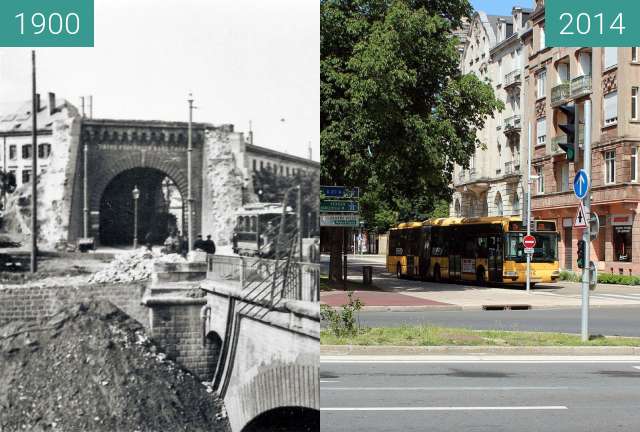
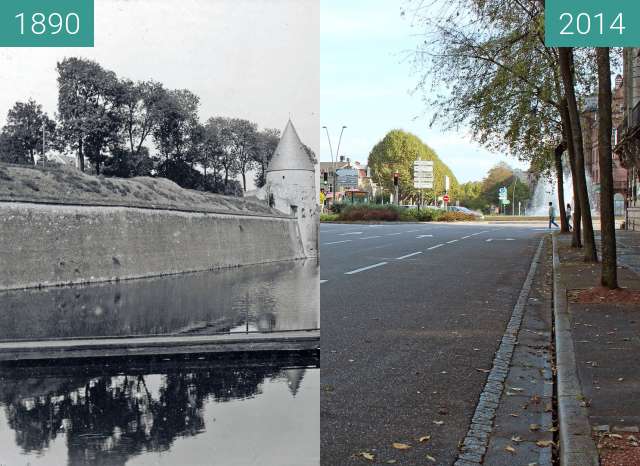
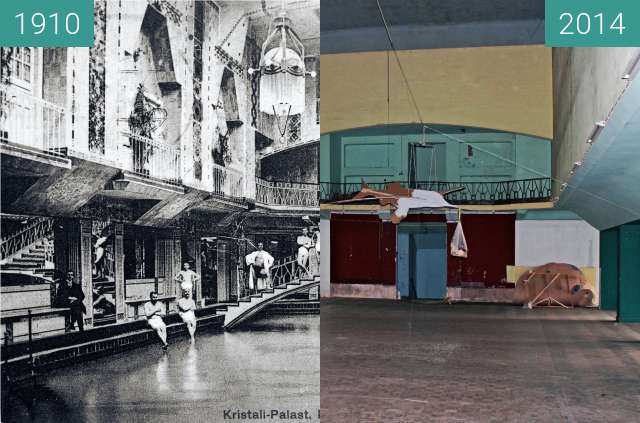
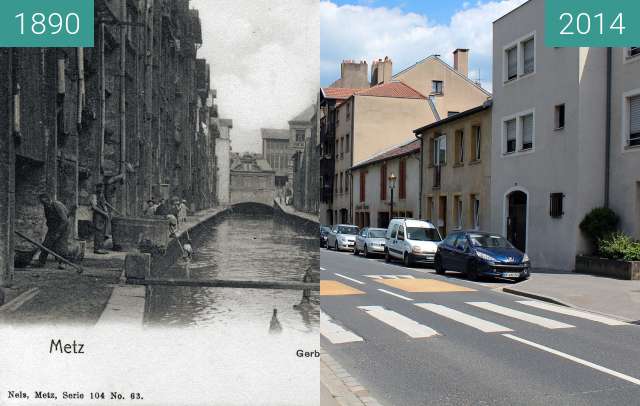
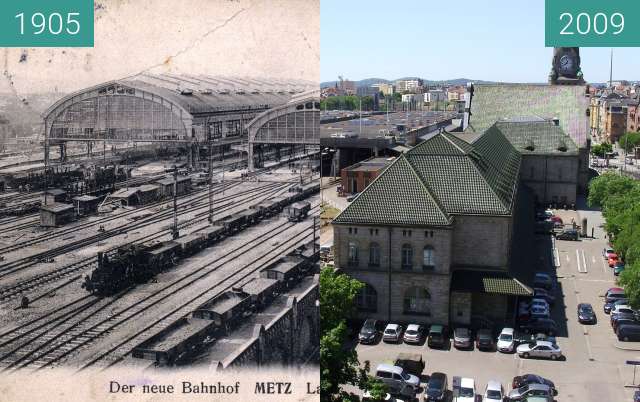
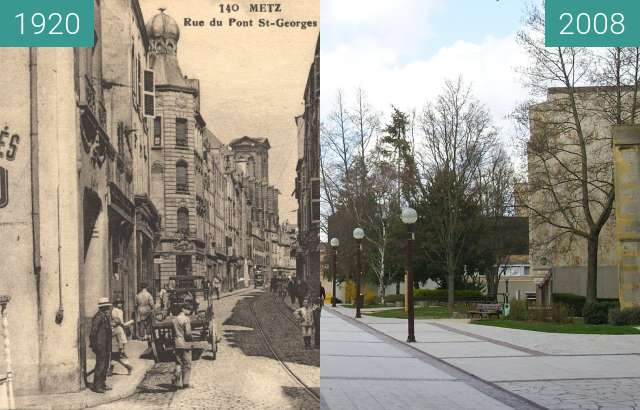
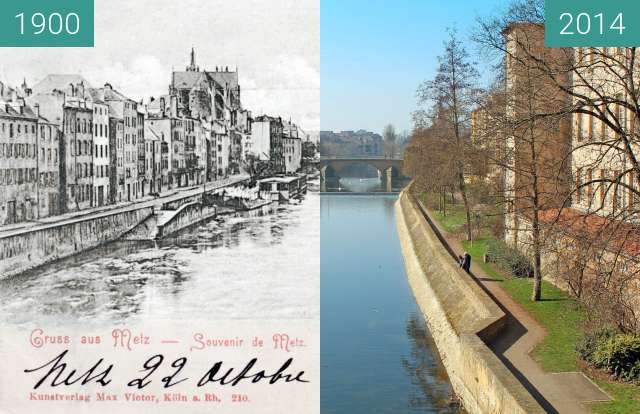
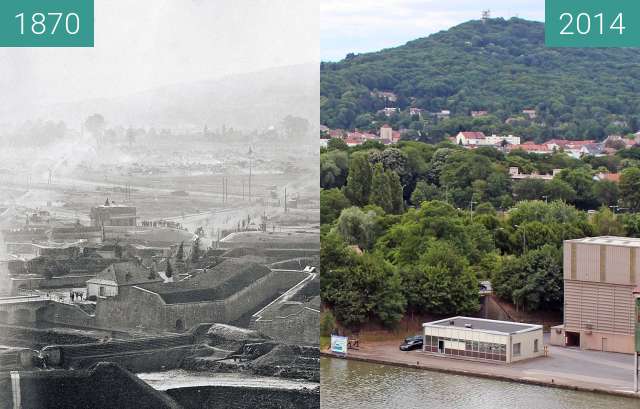
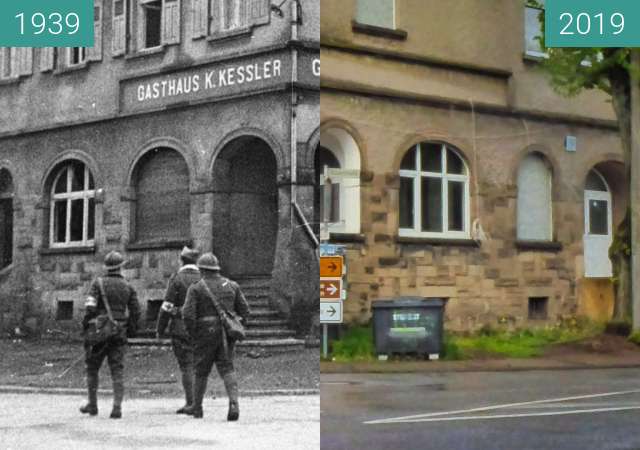
Metz fut la quatrième ville au monde à accueillir l’Exposition Universelle de mai à septembre 1861. Après Londres en 1851, ce fut New York en 1853 puis Paris en 1855.
Depuis la place de la République un passage face à la statue du Général Ney amenait par l’Esplanade jusqu’à une galerie qui devait initialement exposer des œuvres d’art, mais où l’on présenta de l’horticulture. C’est le bâtiment sur le cliché ancien.
Témoin visible encore de nos jours de cette Exposition Universelle, les serres, œuvre du ferronnier messin Pantz. Elles furent démontées pour être remontées dans le jardin Fabert puis déplacées en 1886 dans le parc Frescatelly, l’actuel Jardin Botanique.
L’Exposition Universelle de Metz a été l'occasion de développer l’infrastructure ferroviaire entre la France et l’Allemagne. Dans le Catalogue Général de l'Exposition Universelle, imprimé en 1861, un passage m'a particulièrement touché : "Les peuples entreront en relations plus intimes et nous ne verrons plus nos frontières inquiétées par des bruits d'invasion." Neuf ans plus tard, l’armée prussienne envahissait Metz.
Metz was the fourth city in the world to host the Universal Exhibition from May to September 1861. After London in 1851, it was New York in 1853 then Paris in 1855.
From the Place de la République, a passage opposite the statue of General Ney led via the Esplanade to a gallery which was initially to exhibit works of art, but where horticulture was presented. This is the building on the old photograph.
Witness still visible today of this Universal Exhibition, the greenhouses, work of the ironworker Metz Pantz. They were dismantled to be reassembled in the Fabert garden and then moved in 1886 to the Frescatelly park, the current Botanical Garden.
The Universal Exhibition in Metz was an opportunity to develop the rail infrastructure between France and Germany. In the General Catalog of the Universal Exhibition, printed in 1861, a passage particularly touched me: "The peoples will enter into more intimate relations and we will no longer see our borders disturbed by rumors of invasion." Nine years later, the Prussian army invaded Metz.